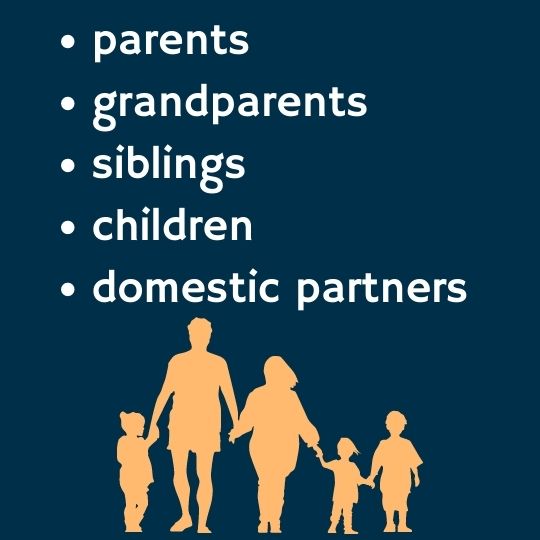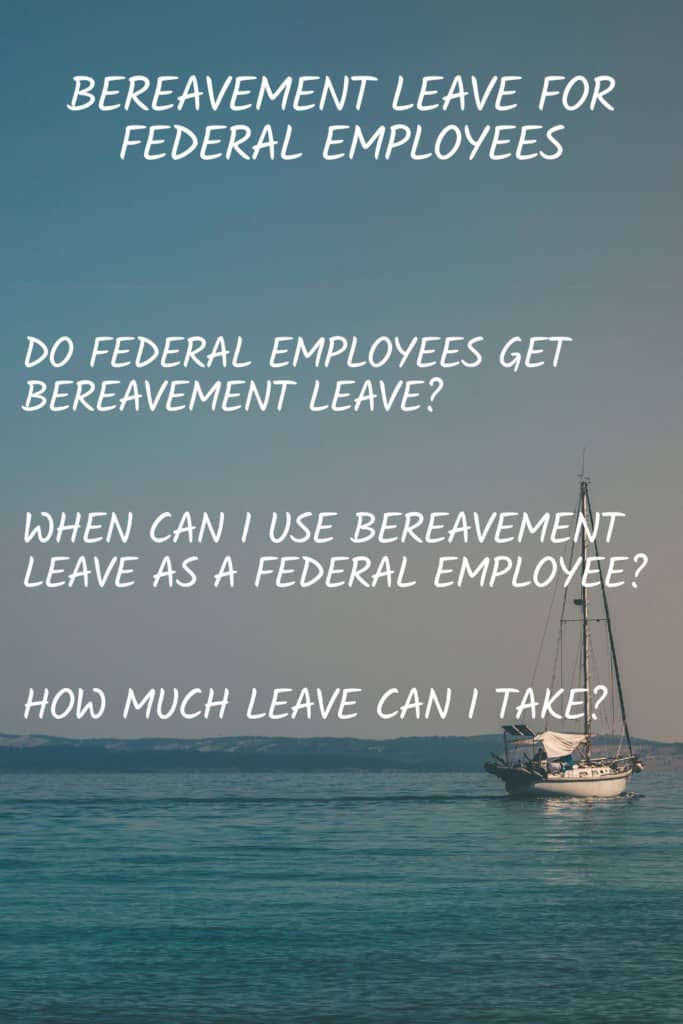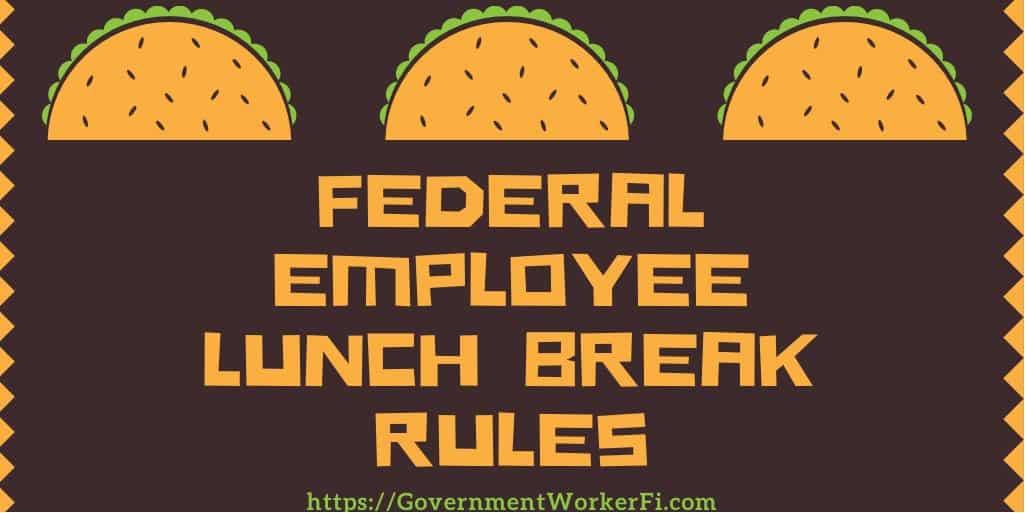Bereavement leave is something that you never think about until someone close to you passes away.
If you’re a federal employee, chances are that you know that OPM has a bereavement leave policy somewhere but nobody in your office knows what the actual rules are.
Perhaps you even asked your supervisor about taking bereavement leave and had disagreements about how much time you could take off.
If you are looking for answers about bereavement leave for federal employees I created this simple, easy-to-understand guide to walk you through everything you need to know.
Get Gov Worker’s top 4 tips for federal employees!Table of Contents
- Do federal employees get bereavement leave?
- When can I use bereavement leave as a federal employee?
- What other bereavement leave options do I have as a federal employee?
- How many days off do you get when a family member dies?
- New in 2022: special bereavement leave for the death of a child
- Where can I get more information?
Please do not confuse my personal blog for financial advice, tax advice or an official position of the U.S. Government. This post may contain affiliate links. If you make a purchase after clicking on a link, I get a small percentage of the sale at no additional cost to you.
Do federal employees get bereavement leave?
Federal employees do not get a a special type of leave for bereavement purposes. However, they can use annual leave or sick leave for bereavement depending on their relationship to the deceased.
Federal employees cannot use administrative leave for bereavement purposes.
This rules regarding bereavement leave for federal employees are specified by OPM and are therefore consistent across all agencies. The remainder of this article explains when you can use sick leave for bereavement purposes.
When can I use bereavement leave as a federal employee?
As a federal employee, you can use sick leave for bereavement following the death of a “family member”. I put family member in quotations since OPM uses a very strict definition of who counts as a family member.
Who is considered immediate family for bereavement leave?
For bereavement purposes, OPM defines family in document 75 FR 33491 and in the code of federal regulations under 5 CFR 630.902. If you want to use your sick leave following the death of someone close to you, they need to be a family member as defined in that document.
If they are not covered in the OPM guidance, you will have to talk to your supervisor about taking annual leave following their death.
To summarize the OPM guidance, you can take bereavement leave following the death of your (or your spouse’s):
- parents
- grandparents
- siblings
- children
- domestic partners
In addition to the above list, you you may also take leave for someone who had the “equivalent of a family relationship”. For example you could use bereavement leave to plan your aunt’s funeral if she raised you.
As a federal employee, I could see this last definition causing friction. For instance, perhaps your supervisor would not approval bereavement/funeral leave for you if your aunt died. If you are struggling with this issue you may try speaking with your Union (if you have one) and/or sharing the code of federal regulations and OPM guidance with your supervisor.

Technically, the OPM guidance states that bereavement leave is only for planning and attending the funeral. The exact details for the use of bereavement leave are set in 5 CFR § 630.401.
However, I can’t imagine being a productive employee after the loss of a loved one. You and your supervisor may come to a broad or narrow agreement as to “makes arrangements” in the phrase “makes arrangements necessitated by the death of a family member.”
What other bereavement leave options do I have as a federal employee?
If you do not qualify for sick leave, you can substitute annual leave after your loss.
Furthermore, in certain cases you may be able to use leave under the Family and Medical Leave Act (FMLA). The benefit of invoking FMLA leave is that it has a broader definition of family members as defined in CPM-2010-15.
Advanced leave
If you’ve exhausted your sick and annual leave, you could decide to apply for advanced leave during the bereavement process.
Advanced leave would need to be approved by your supervisor. You may also ask your supervisor for other flexibility, such as the ability to work a different schedule for a period of time or apply for leave without pay (LWOP).
Your supervisor will ultimate determine whether you can utilize these options. However, it is worth asking for these changes to your work environment if you need them.
How many days off do you get when a family member dies?
You can use up to 104 hours of sick leave (13 days) for bereavement leave in a calendar year. However, this 13 day limit also includes any sick leave taken to care for someone within your immediate family (see this OPM fact sheet).
Obviously if you were caring for someone with a chronic illness and death, it may be easy to exceed this 13 day limit.
In that case, you may wish to apply for FMLA leave. You may also wish to talk to your supervisor about any other flexibility that might be available during this time.
New in 2022: special bereavement leave for the death of a child
In the National Defense Authorization Act for Fiscal Year 2022 Congress created a new benefit for federal employees. Qualifying federal employees can receive 2 weeks of bereavement leave following the death of a child. While I hope this is a benefit that you never have to use, I thought that I should summarize some of the major points.
- You need to have worked for the federal government for at least a year to qualify for this benefit. Temporary employees are not eligible.
- You have 1 year to use this special bereavement leave.
- The parental bereavement leave for federal employees is its own leave category. You do not need to use your sick leave or annual leave for these two weeks of leave.
- The leave only applies to minor children (under the age of 18) or child 18 years of age or older and incapable of self-care because of a mental or physical disability.
- In general, the two weeks of leave must be taken continuously, however, you may ask your supervisor to approve taking this leave intermittently.
- If requested by your supervisor, you may need to provide a death certificate to justify the use of the leave.
Full details were released in a memo by OPM.
After reading through all of the OPM guidance, it is not clear to me whether or not you would qualify for the leave after a stillbirth. I couldn’t imagine getting productive work done for quite some time after experiences a stillbirth so I would like to think that your supervisor may approve your request to use the leave. Furthermore, some states provide birth certificates and death certificates for stillborn babies so I would think that you may be able to meet the documentation requirements if it was contentious.
Where can I get more information?
I’ve tried to summarize the Office of Personnel Management (OPM)’s rules regarding bereavement leave in plain language. However, if you’re a federal employee who is having issues with the approval of bereavement leave, you’re obviously going to want to read through the full documentation.
Here are some helpful documents:
- Leave for Funerals and Bereavement- Fact Sheet
- Sick Leave for Family Care or Bereavement Purposes- Fact Sheet
- Family and Medical Leave- Fact Sheet
- Federal Employee Leave Calendar
- Federal Employee Sick Leave in Retirement Calculator
I pass along my condolences for your loss and hope this article helped you understand your benefits during this difficult time.
If you want to brainstorm ideas with other federal employees, feel free to post a question in my Facebook Group.
Get Gov Worker’s top 4 tips for federal employees!




